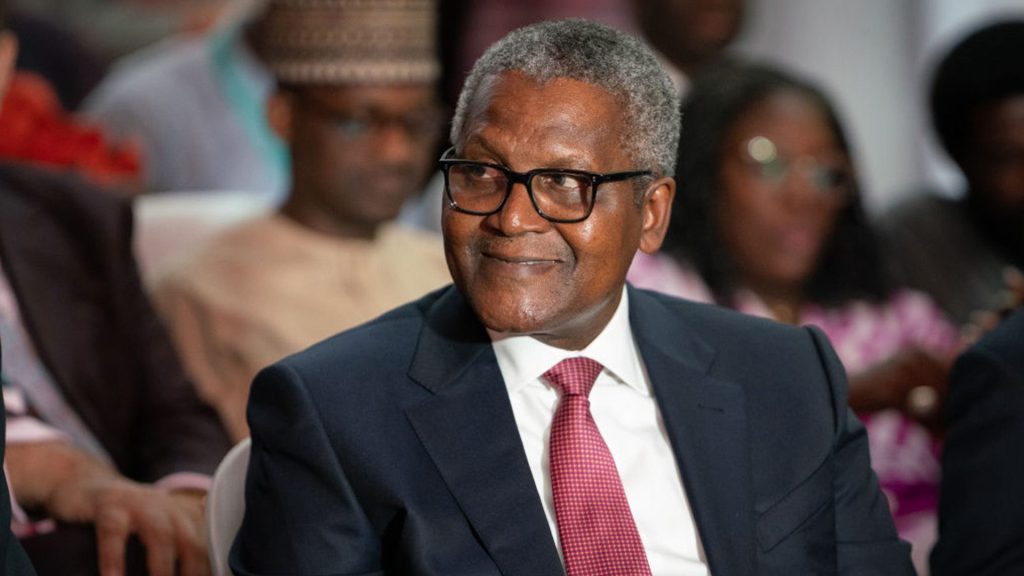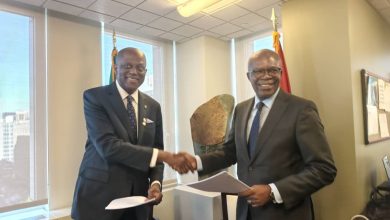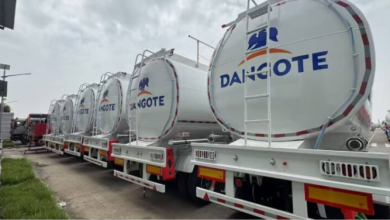Dangote, MAN Urge Government to Enforce Procurement Law, Promote Local Manufacturing
Aliko Dangote and the Manufacturers Association of Nigeria have urged the Federal Government to enforce the Nigeria First Policy.
They said the Public Procurement Act should prioritize locally made products in government spending.
The President of Dangote Industries Limited, Aliko Dangote, and the Manufacturers Association of Nigeria (MAN) have urged the Federal Government to strengthen and enforce the Public Procurement Act by incorporating the Nigeria First Policy.

Speaking on Thursday in Lagos at MAN’s 53rd Annual General Meeting themed “Nigeria First: Prioritizing Made-in-Nigeria,” Dangote said the law should ensure that Ministries, Departments, and Agencies (MDAs) dedicate a significant portion of their budgets to locally made products.
He called for the policy to be backed by law with clear penalties for non-compliance, noting that previous executive orders failed because they were not properly enforced. “The Public Procurement Act should be amended to include the Nigeria First Policy and tie budget releases to compliance levels,” he said. “Government must ensure that at least 65 percent of procurement spending goes to local manufacturers.”
Dangote proposed the creation of an independent agency to monitor compliance among MDAs and contractors, with sanctions such as budget cuts or blacklisting for violators. He explained that such measures would strengthen local industries, create jobs, and make Nigeria less dependent on imports.
“The Nigeria First Policy is not just an economic slogan; it is a plan for industrial survival and national growth,” he said.
He also warned against repeating the mistakes that led to the collapse of the textile industry, which cost hundreds of thousands of jobs. Dangote stressed that reviving domestic manufacturing would require steady investment in infrastructure, skills, and technology rather than mere protectionist measures.
The industrialist listed key expectations from the policy, including consistency in government actions, a national supplier registry in partnership with MAN, transparent monitoring systems, and incentives for companies investing in local sourcing and research.
He also appealed for cheaper credit and easier access to foreign exchange, especially for small and medium enterprises involved in government supply chains. “Manufacturers need single-digit interest rates and access to forex for machinery and raw materials,” he said.
Dangote further urged the government to address poor infrastructure and unreliable electricity supply, arguing that local industries cannot thrive without stable power and efficient transport systems.
In his opening remarks, MAN President Francis Meshioye praised ongoing industrial reforms, such as the creation of the Presidential Economic Coordination Council and the Industrial Revolution Working Group. However, he stressed that the Nigeria First Policy must be “fully legislated and implemented” to deliver real results.
Minister of State for Industry, Senator John Enoh, reaffirmed the government’s support for local sourcing and backward integration. He revealed that by December 2025, the ministry would introduce procurement guidelines requiring justification when imported products are chosen over available Nigerian alternatives.
Enoh also announced plans for the Bank of Industry, SMEDAN, and MAN to help 1,000 micro, small, and medium enterprises become certified suppliers by 2026. He added that key industrial hubs in Lagos, Ogun, Kano, Kaduna, Aba, and Onitsha would benefit from dedicated energy and transport infrastructure.
Dangote concluded by calling for stronger collaboration between the public and private sectors. “Every country is working to improve the lives of its people. Nigeria must act quickly. The Nigeria First Policy gives us a real chance to compete globally,” he said.



